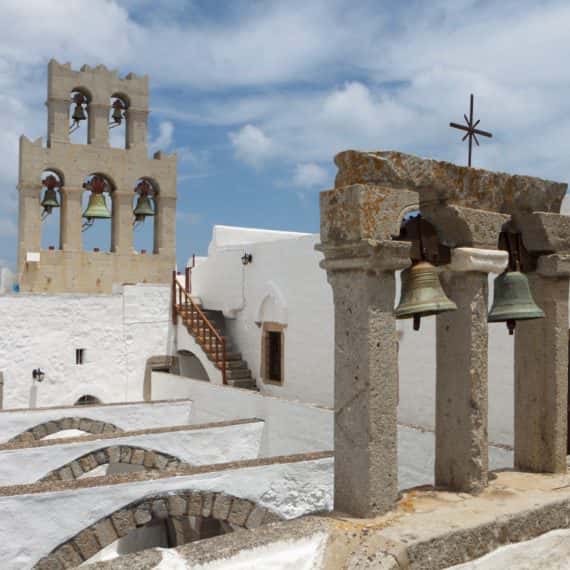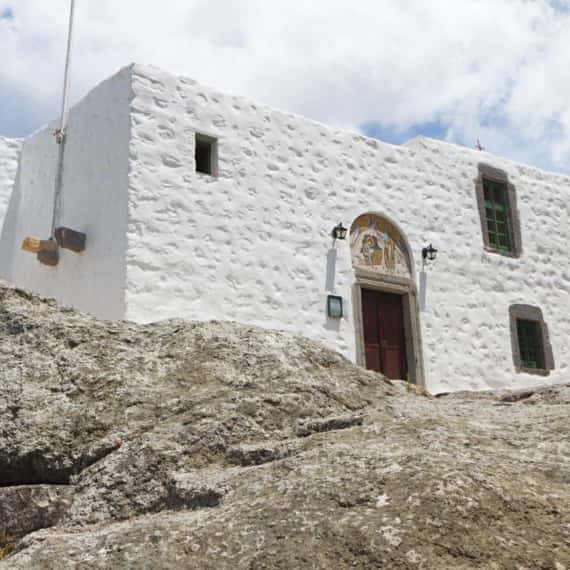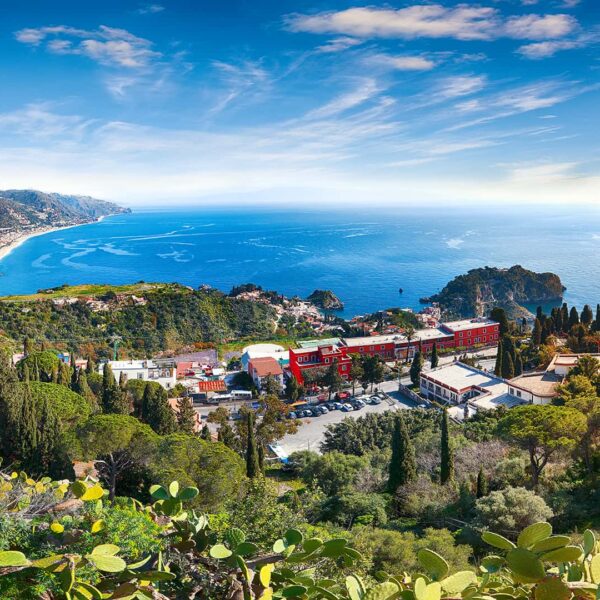A Greek island steeped in mystery, Greece’s ‘Holy Island’, Patmos, has a strong spiritual character, but it also one of Greece’s most beautiful islands.
According to ancient Greek mythology, the island of Patmos was originally named Litois, in honor of the Goddess Artemis who was also called Litoida because she was the daughter of Lito. Greek legend says the island sunk deep into the sea and that Artemis, with the help of Apollo, managed to persuade Zeus to bring the island back above the surface. As proof of devotion, the inhabitants of the island named it Litois.
The island of Patmos is inhabited since 3,000 BC, but the identity of its first inhabitants is still unknown. Some believe that the Kares, the Leleges and the Pelasgous were the first settlers while some think that the Dorians were the first inhabitants, followed by the Ionians.
A Greek island steeped in mystery, Greece’s ‘Holy Island’, Patmos, has a strong spiritual character, but it also one of Greece’s most beautiful islands. With charming villages, narrow alleys, and a stunning view of the Aegean Sea, Patmos is the perfect place to explore on your trip to Greece.
The Island itself is elongated and somewhat hourglass-shaped and only stretches 12km from top to bottom. As for Patmos’ beaches, they are some of the most pristine in all the Greek Islands and are secluded, thus perfect for those who seek privacy.

The Monastery of St John the Theologian was established in 1088 by St Christodoulos, a Greek monk. Patmos has been ravaged by pirates, devastated by famine and earthquake, sacked by Venetians, and occupied by Ottomans, Italians, and Nazis and through it, all Christodoulos’s monastery has endured. Today, the Monastery’s library is the most important in Greece, outside the Greek Orthodox center of Mount Athos.

Patmos’s most famous sight is undoubtedly the Cave of the Apocalypse where John the Apostle had an apocalyptic vision. In this vision, he spoke to an amanuensis while lying on his back in a cave in the Book of Revelation: the final and most mysterious of biblical works. It’s a terrible account of evil with its vanquishing of Armageddon, the wasting of Babylon, and the founding of God’s Kingdom. John had lived in Ephesus but was exiled to Patmos for his religious beliefs. According to the legend, his vision was so intense and formidable it split the cave’s ceiling in three.

Chora is picture-perfect Greece as its best, with a medieval castle and whitewashed houses set around squares draped in bougainvillea. Tavernas spill onto streets, locals play backgammon in traditional bars, and mesmerising views of the Aegean surround you.
Although not known as a party island – monastic influence, though no longer all-encompassing, has had a long hangover – Pátmos certainly isn’t dead by night. Under the leaping arches of a designer-converted medieval cellar lies Hóra’s trendiest bar, Stoa, also known as Theo’s. A range of music is played, including lounge, ethnic, Latin, jazz, and even the occasional special/DJ’d events.
Agriolivado beach is a small and secluded beach located 8 km from Chora and 3 km north of Skala, the main port of Patmos. The beach consists of sand and pebbles while it is surrounded by lush vegetation. Waters are always calm, clean with a crystalline appearance. Along the coast lie many sunbeds and umbrellas to protect you from the sun and offer you a relaxing sunbathing.
We highly recommend that you wander the labyrinthine passageways of the medieval capital of Chora. Whitewashed houses, mansions, captain’s residences, narrow streets and alleyways, all of which date back to the 15th century make it a truly remarkable town to explore.
The monastery of Agios Ioannis Theologos is the most significant cultural and religious center on the island which is visible from every part of the island and is perhaps, the first thing one will notice, as it sits high on the hill above Chora. The museum houses valuable objects, superb icons, ecclesiastical utensils, sacred relics, vestments embroiled with silver or gold threads and bejeweled with precious stones and various garments that constitute the treasury of the monastery.
Benetos Restaurant, owned by Benetos and Susan Matthaiou, opened in Patmos in the summer of 1997. The restaurant is located just outside the town of Skala on a quiet inlet known as Sapsila. Benetos uses a modern approach to classic Mediterranean cooking while also including some Asian-influenced dishes. Emphasis is placed on utilizing the freshest ingredients including local fish and fresh vegetables and herbs from their own organic garden.
In Patmos, there are vineyards that produce the white wine “Moschato” of Alexandria and “Fokiano”, a red wine of a slightly sweet variety. Don’t miss the chance to visit Patoinos – Domaine de l’Apocalypse winery for an unforgettable wine journey on your trip to Greece.
Would you like to find out more about this destination or speak with one of our Epicureans about the best options in Greece? Reach out to one of our experts who can tailor an unforgettable experience that will be the envy of your friends.